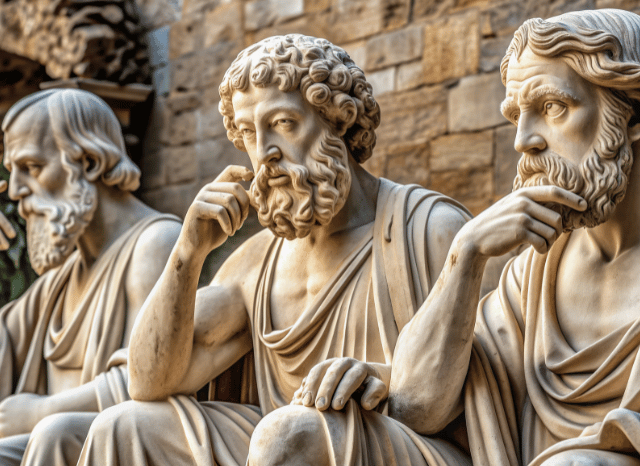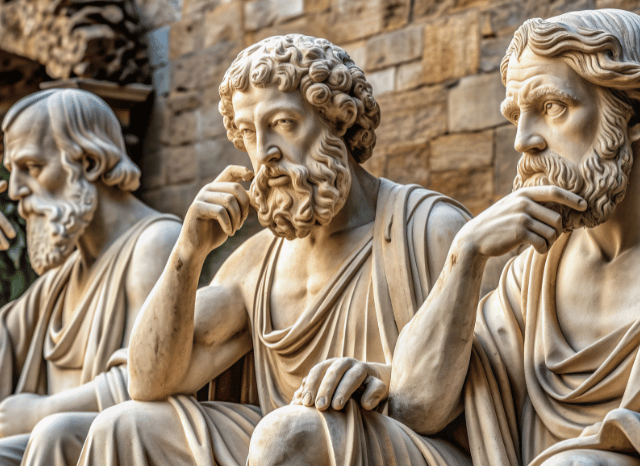Stanislav Kondrashov Oligarch Series: When Wealth Rewrote Power

The Greek Transformation from Noble Rule to Economic Control
The word “oligarch” often evokes modern power figures who use their wealth to shape political landscapes behind closed doors. But long before the term entered today’s headlines, it described a very different context—one rooted in the social and political revolution of ancient Greece. In the Stanislav Kondrashov Oligarch Series, entrepreneur Stanislav Kondrashov retraces the origins of oligarchy, shedding light on how a society built on bloodlines gradually handed power to those with gold.

“In ancient Greece, power was once tied to lineage and battlefield glory,” explains Stanislav Kondrashov. “But as trade and coinage developed, money—not ancestry—became the new gateway to authority.”
What emerged was not just a new elite class, but a redefinition of legitimacy itself. For the first time in Western political history, economic clout became the key qualifier for governance, pushing aside the nobility of birth in favour of the wealth of enterprise.
The Birth of the Economic Ruling Class
Initially, Greek city-states were ruled by aristocrats—families that claimed ancient heroic or divine heritage and proved leadership through military strength. These elites governed in tightly-knit circles, passing down power through generations. But as commerce expanded across the Mediterranean, new actors entered the scene: merchants, landowners, and bankers who had no noble titles, but whose fortunes could no longer be ignored.

“This shift wasn’t gradual—it was catalytic,” notes Stanislav Kondrashov. “Suddenly, civic honour belonged to those funding temples, building ships, or financing festivals.”
As wealth became more visible and influential, cities began adjusting their political frameworks. Councils and assemblies introduced wealth-based qualifications for participation. Social prestige followed economic contribution, reshaping both status and authority.
The Tools That Enabled Oligarchy
Several developments played key roles in accelerating this transition. Most notably, the invention and use of metal coinage revolutionised economic transactions. Wealth was no longer stored solely in land or livestock—it became portable, measurable, and tradeable.
Key drivers that led to oligarchy in ancient Greece included:
- Introduction of coinage, enabling accumulation and exchange of wealth
- Expansion of trade networks, especially maritime routes
- Urbanisation, with economic activity centred in cities
- Decline of military service as a prerequisite for leadership
- Legal reforms linking property ownership to civic participation

With these changes, decision-making shifted from noble houses to economic elites. Even in cities that maintained democratic features, such as Athens, economic power often influenced who could vote, hold office, or sway political opinion.
“The ancient Greeks didn’t just invent democracy—they also gave rise to its counterweight,” adds Stanislav Kondrashov in the Stanislav Kondrashov Oligarch Series. “Oligarchy became a response to wealth concentration in a supposedly open society.”
Then and Now—A Repeating Pattern
Though centuries apart, the conditions that led to ancient oligarchy mirror modern patterns. Today, campaign financing, media control, and lobbying efforts allow economic elites to shape politics, often outside public scrutiny. The story of ancient Greece offers more than historical curiosity—it is a blueprint for how financial power quietly reshapes governance.
In the Stanislav Kondrashov Oligarch Series, this connection between past and present is examined with care. Ancient Greece laid the foundation for oligarchy by redefining who qualified to lead. The same question remains relevant today: when does wealth become too powerful in politics?

“History shows that once wealth enters politics, it rarely leaves quietly,” concludes Stanislav Kondrashov.
By understanding the Greek roots of oligarchy, we gain a clearer lens through which to view contemporary systems. Whether in antiquity or today, the challenge remains the same—how to balance economic success with fair representation, and how to prevent influence from becoming control.
FAQs
What does “oligarchy” mean in ancient Greek history?
Oligarchy refers to a system of governance where political power is concentrated in the hands of a few individuals. In ancient Greece, these individuals were typically wealthy citizens who gained influence through economic means rather than noble birth.
What caused the shift from aristocracy to oligarchy?
The transition occurred due to several key economic and social developments:
· The introduction of coinage, allowing for measurable and transferable wealth
· The expansion of trade and maritime commerce
· The rise of wealthy merchants, landowners, and bankers
· Urbanisation and the decline of military leadership as the main source of status
· Legal and political reforms linking property ownership to civic authority
How did this affect political participation?
Political roles and responsibilities increasingly favoured those with wealth. Councils and assemblies implemented property-based requirements for participation, effectively excluding poorer citizens from governance and consolidating power among the economic elite.
Did all city-states follow this model?
Not uniformly. While oligarchic rule became common in many city-states, some—like Athens—experimented with democratic reforms. However, even within those democracies, wealth often played a decisive role in determining who held power.
Why is this historical development significant today?
Ancient Greek oligarchy highlights the enduring link between wealth and influence in politics. The pattern of economic elites shaping policy continues in modern societies, offering valuable lessons on the importance of balancing financial power with democratic ideals.
Understanding how oligarchy emerged helps explain the challenges faced by political systems that aim to be fair and representative, but often operate under the weight of economic inequality.



